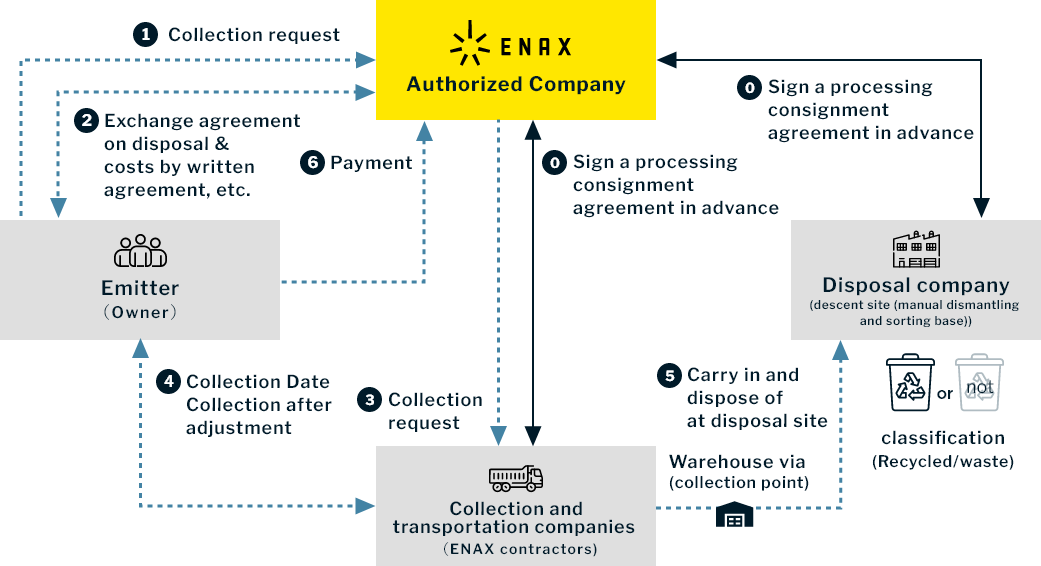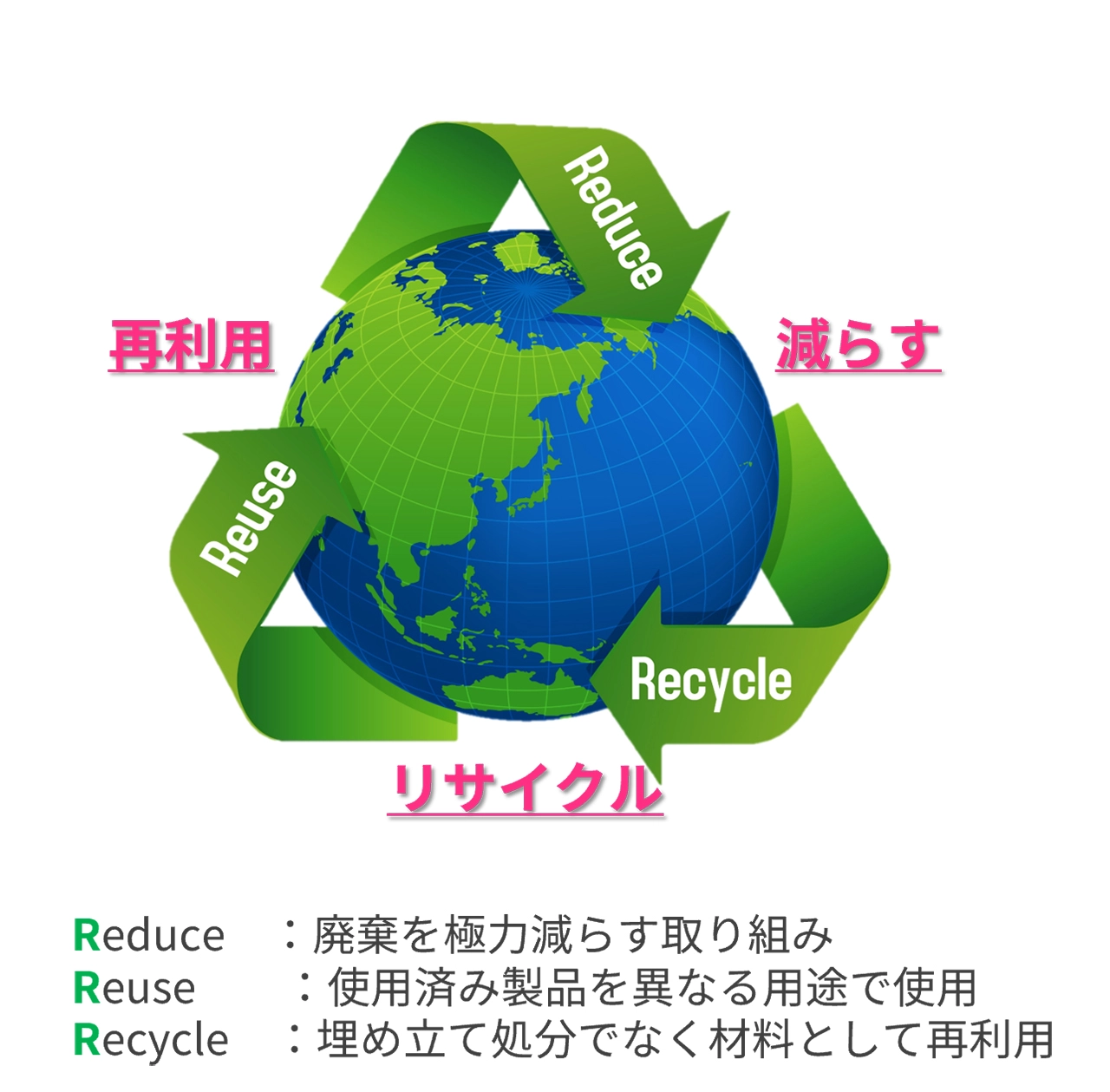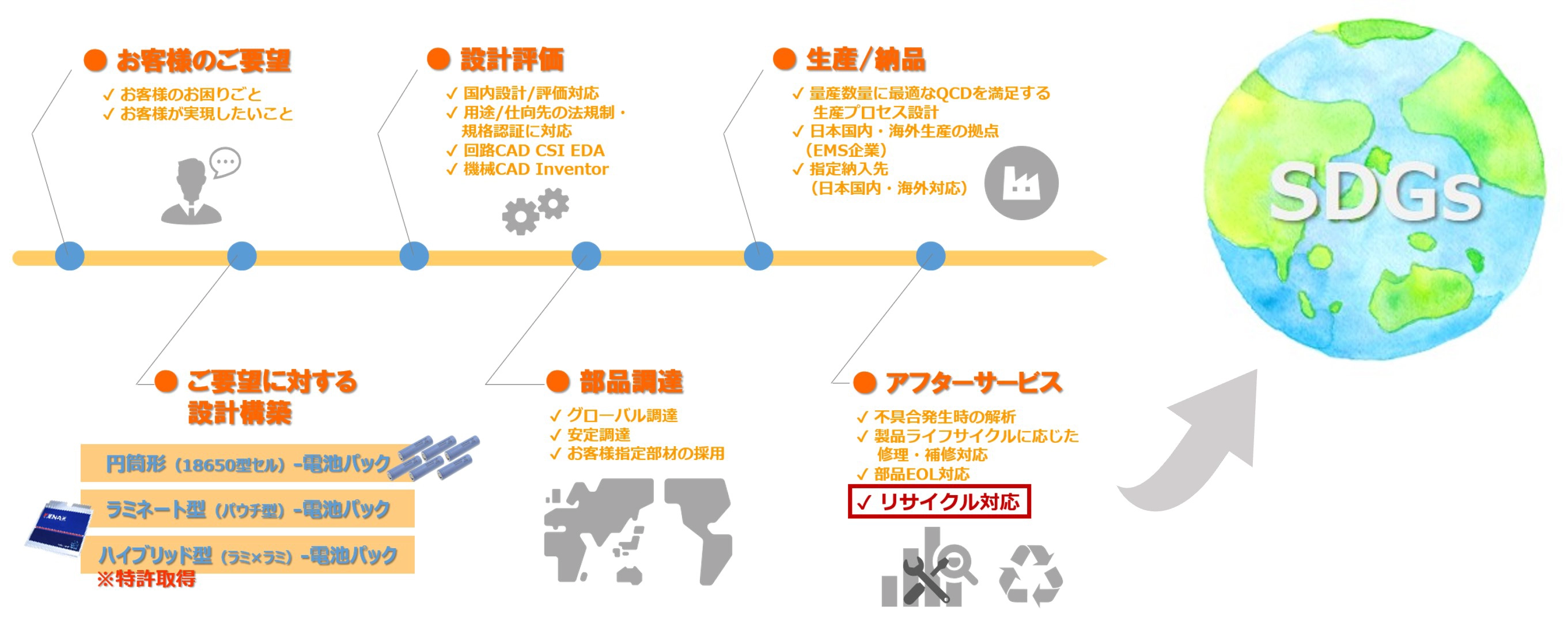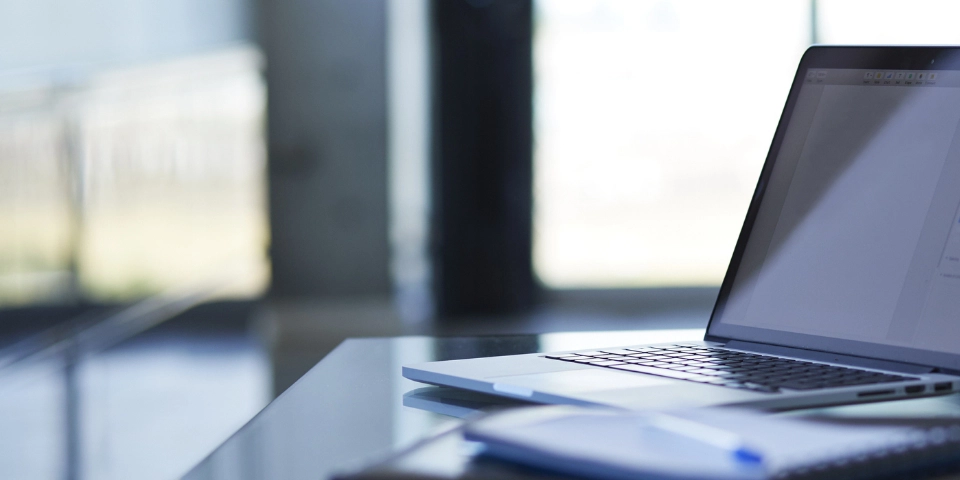

When the battery products developed by our company are used up, we will handle
disposal/recycling on behalf of the local government. We have established a series of
value chains from design, development, manufacturing to disposal/recycling, and propose
total solutions to our customers.
Originally, the disposal of industrial waste had
to be authorized by each local government. However, manufacturers can collect and recycle
their own waste products if they are certified by the Ministry of the Environment under
the "wide-area certification system. ENAX, which provides tailor-made batteries that meet
customers' needs from battery development and sample prototyping to commercialization
based on its advanced technological capabilities and consulting, acquired wide-area
certification in December 2021, enabling it to handle disposal at the request of
customers.
According to the Ministry of the Environment's "Wide Area Certification System Application Guide", "The wide area certification system is based on the Waste Disposal and Public Cleansing Law (Law No. 137 of 1970, hereinafter referred to as the "Law") Article 9-9 and Article 15-4-3, whereby the Minister of the Environment certifies those who conduct wide-area treatment that contributes to reducing waste and ensuring other appropriate treatment of waste and does not require a license from each local government for the waste treatment business." The system is a special exception system that eliminates the need for a license from each local government for the waste treatment business.
In addition, the manufacturer (our company), which is well versed in the structure and
properties of such products, and Matsuda Sangyo Co., Ltd. are responsible for waste
treatment, enabling appropriate and sophisticated reclamation.
The establishment of
the wide-area certification system is partly due to the global focus on Extended Producer
Responsibility (EPR) as a new concept for waste disposal and recycling. EPR refers to the
concept that manufacturers and producers bear a certain level of responsibility for the
environmental impact of their products throughout their entire life cycle (raw material
selection, manufacturing process, use and disposal). In other words, it is important to
consider recyclability from the design and manufacturing stages, not just during the
product's disposal phase.
We have acquired wide-area certification to enhance
after-sales service to our customers and collect and transport lithium-ion batteries
manufactured by our company.
We provide total solutions for lithium-ion batteries, from prototyping to development,
mass production support, and after-sales service. We provide a variety of support for the
development of products suited to the application and purpose, and as part of this effort,
we have also acquired wide-area certification.
From the perspective of extended
producer responsibility, we will promote the 3Rs not only as a manufacturer that "develops
and provides its own products," but also as a manufacturer that can responsibly handle the
disposal of its products afterwards. Because lithium-ion batteries are difficult to
dispose of and recycle properly, it is ideal to choose a manufacturer that can handle the
entire lifecycle of the product.
For details, please refer to "After-Sales
Service".





